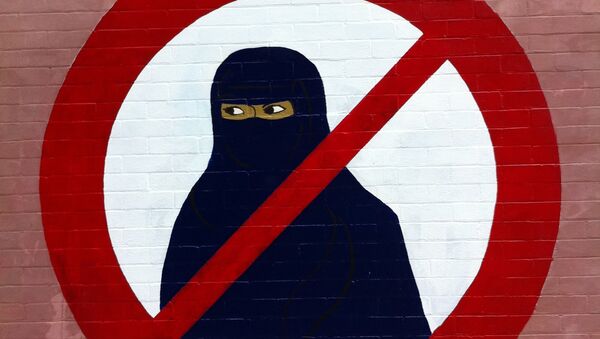Bavarian Interior Minister Joachim Hermann has announced a draft bill banning people from wearing facial coverings in high-security areas, from public events such as elections, areas of public service and educational institutions.
"A culture of open communication is part of the liberal democratic values of the Christian, Western tradition. A communication exchange takes place not only through language, but also through looks, facial expressions and gestures. It forms the basis of our interpersonal coexistence and is the basis of our society and free, democratic, basic order. A face covering disrupts this communication culture," Hermann commented.
The Interior Minister also announced a draft anti-terror law which will allow the police to monitor terror suspects with electronic ankle tags.
"In the future, we will know exactly where such people are and limit their range of movement if necessary. If an offender damages the ankle tag, he can also be taken into custody. This is another measure to better tackle German and foreign threats."
"Bavaria is taking action! Today, the cabinet set in motion a law prohibiting face coverings in Bavaria. Face-coverings are forbidden in areas of public service, colleges, schools, kindergartens, areas of general security and for activities such as elections," the CSU party wrote on its Facebook page.
Facebook users had a mixed reaction to the proposal. Some were in agreement, some called for a complete ban in all public places and others accused the CSU of borrowing a populist policy from the anti-immigrant Alternative for Germany (AfD) party.
A commentary by Katja Auer in the local Suddeutsche Zeitung newspaper linked the CSU announcement with forthcoming federal elections in Germany this fall, and portrayed the idea as opportunistic.
"Such a prohibition is not necessary in Bavaria. If fully-veiled woman appear in large numbers in the Free State of Bavaria, it is usually in the summer on the Maximilianstrass, where they spend a lot of money on expensive clothes. Very few of them will want to become a university teacher in a niqab teaching students, or apply for a job as an educator," Auer wrote.
On Monday, Germany's Federal Ministry of the Interior (BMI) revealed plans to allow Germany's Federal Office for Migration and Refugees (BAMF) to search the phones of asylum seekers in order to make sure of their true identity.
Around two-thirds of asylum seekers arrive in Germany without identification papers, and BAMF wants to ascertain their identity more quickly in order to facilitate faster deportation, officials told the Suddeutsche Zeitung, WDR and NDR news outlets.
Never miss a story again — sign up to our Telegram channel and we'll keep you up to speed!




